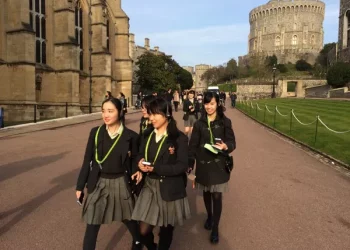South Korea is a popular destination for expats and travelers, known for its vibrant culture, high-tech industries, and natural beauty. However, many people wonder about the cost of living in Korea before deciding to move or travel there. In this article, we will discuss how expensive it is to live in Korea and what factors affect the cost of living.
Housing Costs
Housing is one of the biggest expenses in Korea, especially in the capital city, Seoul. The rental prices for apartments and houses vary depending on the location, size, and amenities. In general, the closer you live to the city center or popular areas, the more expensive the rent. The average monthly rent for a one-bedroom apartment in Seoul is around 800,000 KRW (around $700 USD), while a three-bedroom apartment can cost around 2,500,000 KRW (around $2,200 USD). However, the prices may vary in other cities or rural areas.
Food and Drink Costs
Korean cuisine is famous for its delicious and healthy dishes, but it can also be expensive if you eat out frequently. The cost of food and drink depends on the type of restaurant, the quality of the ingredients, and the location. A meal at a local restaurant or street food vendor can cost around 6,000 KRW (around $5 USD), while a meal at a fancy restaurant or international chain can cost upwards of 30,000 KRW (around $26 USD). If you prefer cooking at home, the prices of groceries and household items are generally affordable and similar to other developed countries.
Transportation Costs
Transportation in Korea is efficient and reliable, with a wide network of subways, buses, and taxis. The cost of transportation depends on the distance, mode of transportation, and time of day. The average subway fare in Seoul is around 1,250 KRW (around $1 USD) for a single ride, while a bus ride costs around 1,200 KRW (around $1 USD). Taxis are also affordable, with a base fare of 3,800 KRW (around $3 USD) and an additional charge for distance and time.
Other Expenses
Other expenses in Korea, such as healthcare, education, and entertainment, are generally affordable and accessible. Healthcare costs are covered by the National Health Insurance system, which requires a monthly premium of around 110,000 KRW (around $96 USD). Education costs vary depending on the level of education and institution, but public schools and universities are generally cheaper than private ones. Entertainment costs, such as movie tickets, concerts, and amusement parks, are similar to other developed countries.
In conclusion, the cost of living in Korea is relatively high compared to other Asian countries but is still manageable and affordable for expats and travelers. The housing and food costs may be the biggest expenses, but there are also many ways to save money by choosing affordable options or cooking at home. By understanding the cost of living in Korea and planning your budget accordingly, you can enjoy your stay in this vibrant and exciting country.




















